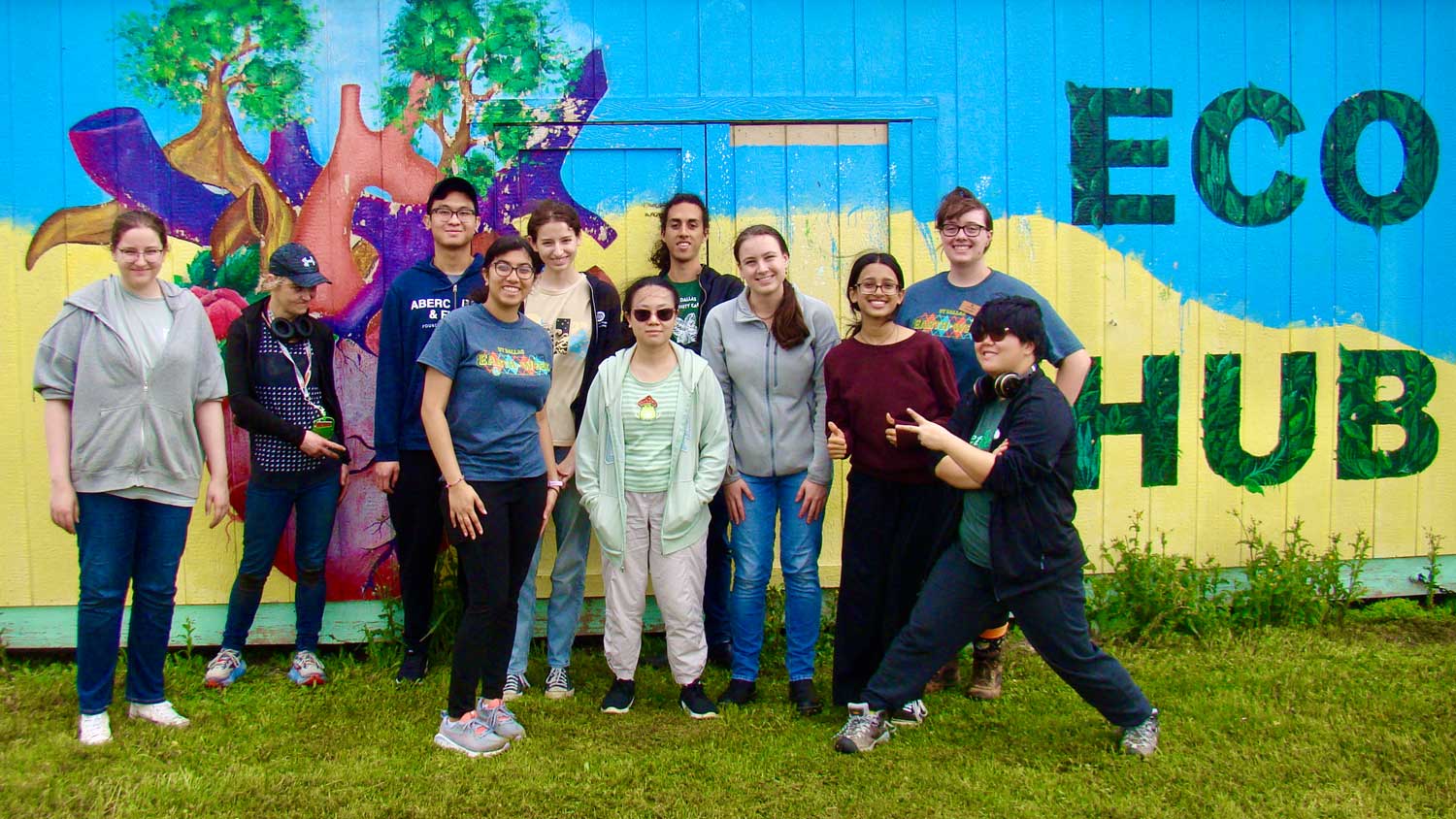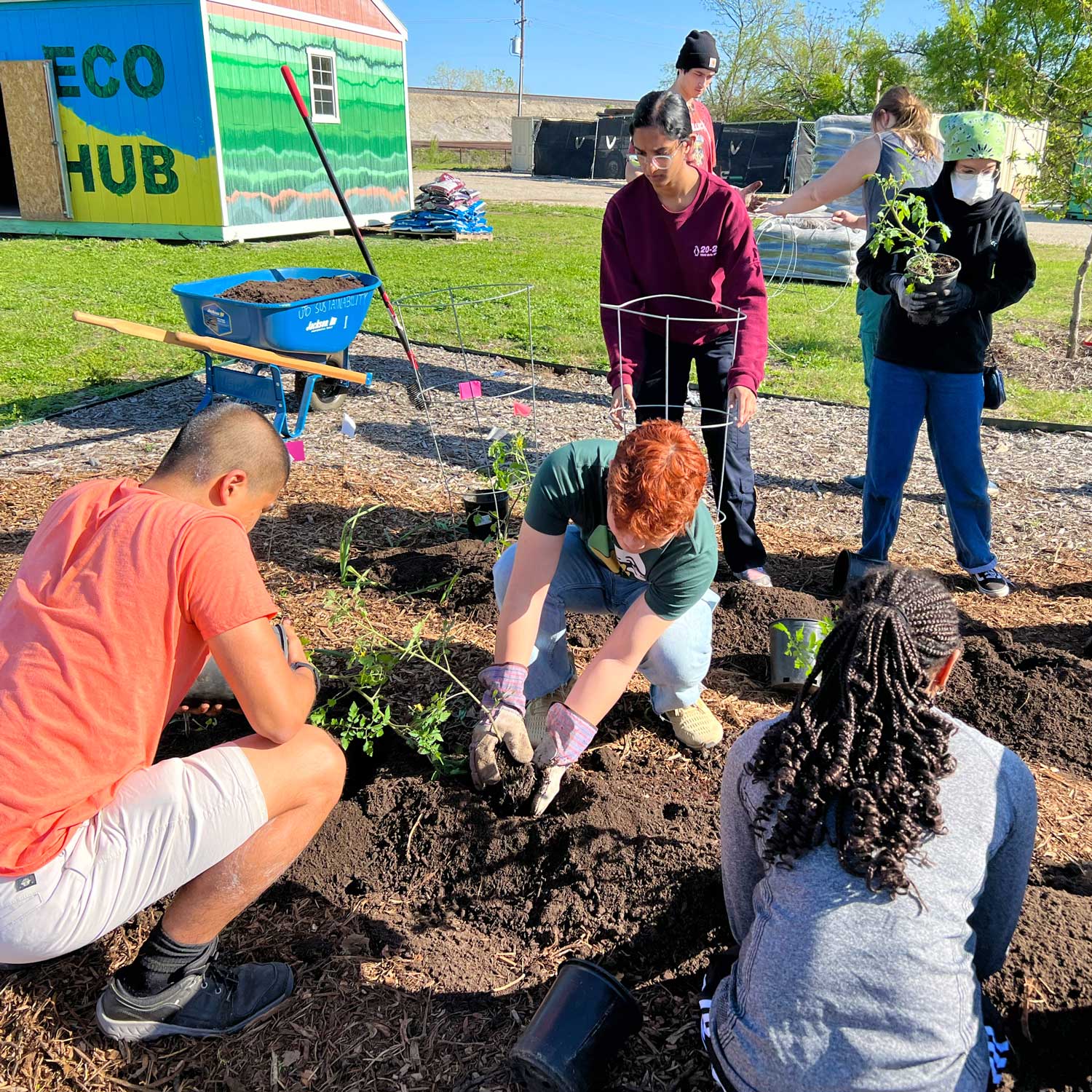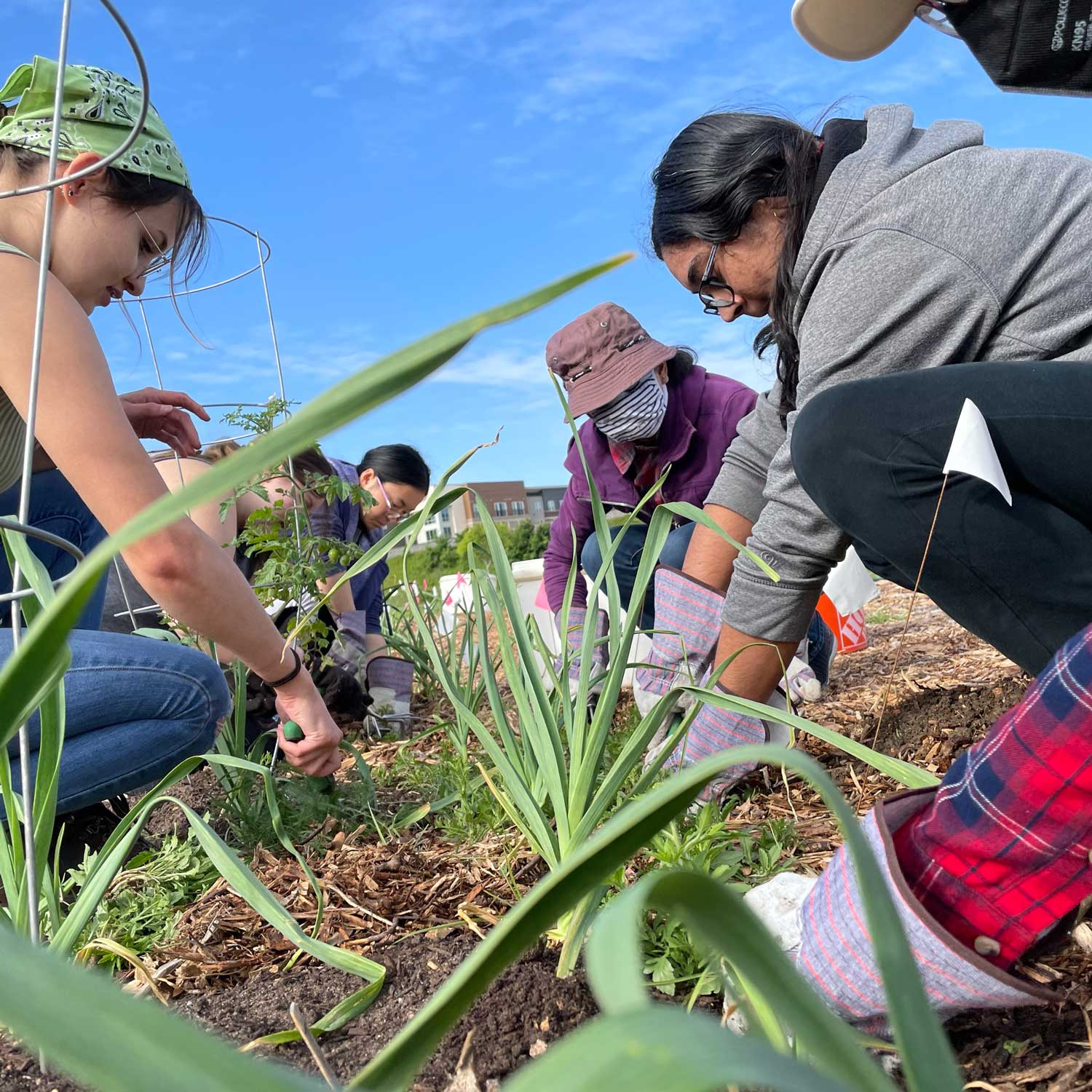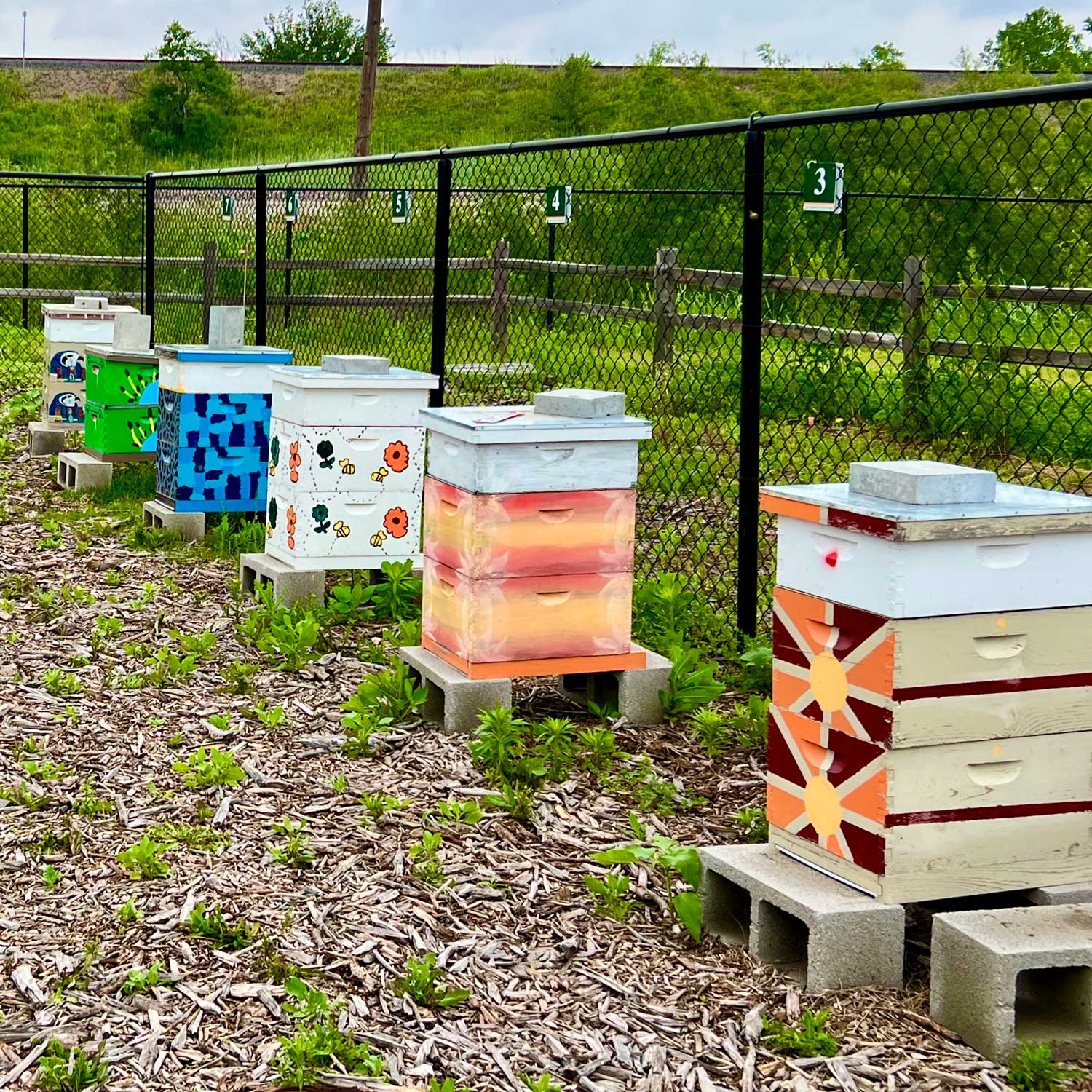
The Eco Hub & Luna Farm
Sustainability - The University of Texas at Dallas
Eco Hub
In fall 2021, The Office of Sustainability launched its brand-new Eco Hub, which is a hive for sustainability leadership on campus and in our community. Located at the site of the campus’s former on-site compost operation on Synergy Park Blvd., the Eco Hub is intended to serve as a space for sustainability experimentation, innovation, and living laboratory initiatives.

The facility features a number of projects including Luna Farm, an apiary where students can participate in the care of honeybees while learning from UTD’s experts, Dr. Scott Rippel and Dr. Christina Thompson, owl boxes, and living laboratory projects, including an experimental soil quality sensor led by Dr. Shalini Prasad and her lab.
Luna Farm
Luna Farm is a 20,000 sq ft micro-farm located within the Eco Hub. The farm features in-ground rows for planting, trellises for growing vining plants such as peas and beans, above-ground containers, an orchard featuring peach, plum, fig, persimmon, and pecan trees, a greenhouse built in part with funds donated by the Class of 2018 McDermott Scholars, and a student-painted shed for tool storage.
Luna Farm operates under three tenets:

- Fighting Food Insecurity
100% of the produce grown at Luna Farm is donated to the Comet Cupboard, which helps support food insecure Comets. While distribution centers and grocery stores are often able to provide shelf-stable goods to local pantries, long supply chains and storage times means that pantries often go without fresh produce. Luna Farm and other local farms can help supplement local pantries’ supplies with locally-grown food that would otherwise not be available to pantry clients. - Leadership and Education
Luna Farm operates by and for students. Two student leaders, known as Eco Reps, plan and coordinate weekly workdays with the help of their supervisor. Through these workdays, students, staff, and faculty have the unique opportunity to gain hands-on gardening experience and make meaningful connections. Each workday is a unique opportunity to teach the UT Dallas community about where their food comes from and gardening skills that transcend generations. - Sustainability
The farm is guided by organic farming principles, including avoiding synthetic pesticides and herbicides. At Luna Farm, we believe that being good stewards of the environment and preserving our planet’s resources for future generations isn’t just nice to do, but a necessity.
Luna Farm is proud to be a registered North Texas Food Bank Partner Garden, USDA People’s Garden and an American Heart Association Teaching Garden.
Volunteer Workdays

Luna Farm hosts weekly workdays (usually on Saturday mornings) that are open to all of UTD, including current students, staff, and faculty. Volunteers can be expected to perform basic gardening tasks such as weeding, watering, harvesting, planting, and laying mulch. On some workdays, there will be a formal educational component on basic gardening topics such as seasonal planting, composting, harvesting, fruit tree care, and more.
Please wear closed-toe shoes and dress for the weather. We work in heat and cold but will cancel in the case of extreme conditions. It is strongly recommended that you bring a snack and a large, filled water bottle. There is no potable water and no bathrooms at the Eco Hub. Please plan accordingly.
Workday dates and information are located on Engage UTD. Log in via SSO with your UTD NetID and password to view the information and sign up for workdays.
If you are a student organization or another group of 5 or larger wishing to volunteer at a workday, please contact sustainability@utdallas.edu.
Please contact sustainability@utdallas.edu for inquiries regarding participation for minors 13 years of age and older. Unfortunately, due to the nature of the activities at the Eco Hub and Luna Farm, we are unable to accommodate minors under the age of 13.
Location and Directions
The facility is located next to the new water tower on Synergy Park Blvd across from Point North Park. There is limited parking, so during workdays, please park on campus (Lot S and Lot A are the closest lots) and walk to the farm. You can also bike to the farm or take DART Route 232 or Route 883 (Comet Cruiser). Check online for the most up-to-date information about DART buses and run times.
